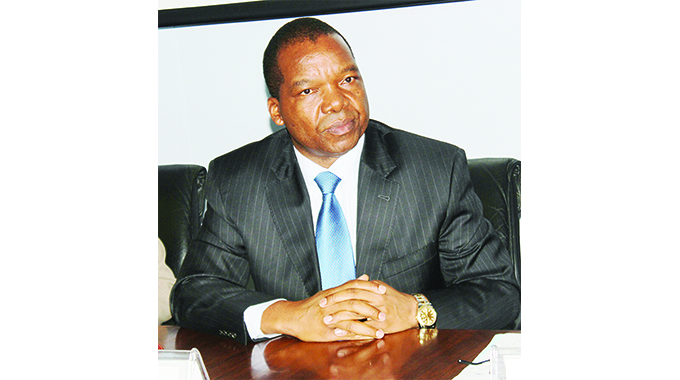
The Sunday News

Gabriel Masvora, News Editor
THE use of foreign currency in Zimbabwe is still allowed as per Statutory Instrument 85 of 2020 despite some retailers panicking and temporarily suspending accepting foreign currency while they automate their systems to conform to new laws governing the use of foreign currency.
The Government announced Statutory Instrument (SI) 127 of 2021 Presidential Powers (Temporary Measures) promulgated last week, to deal with firms that were abusing foreign currency obtained at the RBZ Foreign Currency Auction Trading System. According to the SI, companies abusing the system will be heavily penalised.
However, some retailers responded by suspending US dollar payments for purchases. In a notice, one of the biggest retail shops in the country, OK Zimbabwe yesterday said it was no longer accepting foreign currency at the tills but those intending to use foreign currency had to change it at bureau de-changes in-store.
“This memorandum serves to inform all branches that as a result of Statutory Instrument 127 of 2021, they can no longer accept foreign currency as a payment option at the tills, effective immediately. Our receipts at the tills are not yet in compliance with SI which states that inter alia, a seller of goods or services is not allowed to issue a buyer with a receipt in Zimbabwe dollars for payment received in foreign currency, or to record other sales other than in the currency in which the sale was conducted.”
Some retailers in Bulawayo were, however, still accepting foreign currency at tills and issuing out reciepts in local currency. RBZ Governor Dr John Mangudya told Sunday News yesterday that the use of foreign currency was still legal in Zimbabwe.
“The use of foreign currency for the payment of goods and services in the country is still allowed as per Statutory Instrument 85 of 2020,” he said.
Dr Mangudya gave businesses two weeks to regularise their operating systems to comply with Statutory Instrument 127 of 2021 on the receipting of goods and services in either foreign or local currency. Dr Mangudya said the SI was promulgated to deal with arbitrage on the market where some companies were using the parallel exchange rates for goods that they would have bought using money obtained at the RBZ auction system. The auction system rate for US$ is at $86 (for the week under review) while parallel market rates had been attracting above $100.
“The purpose of Statutory Instrument 127 is to ensure that those obtaining foreign exchange from the auction system use the market exchange rate which is within the auction weighted exchange rate or the auction bid range. This is essential to minimise arbitrage on foreign exchange obtained from the auction system. Whilst some businesses were compliant, others were not. This Statutory Instrument is therefore important to enforce compliance which is necessary to continue to stabilise the economy,” he said.
Dr Mangudya said the dual exchange rate that some businesses were using was creating distortion in the market.
“The use of parallel exchange rates of above 100, for example, on funds obtained from the auction system at 85 to the US$ is not good for the economy and consumers. It is these anomalies or arbitrage opportunities that the Statutory Instrument is designed to deal with. It is not designed to harm business but to provide a level playing field in business and to protect the consumers.”
He said it was unfair that some companies were buying finished goods at retail shops using the auction rates and then peg them at parallel market rates.
“You will find someone going to TM and buying something pegged at auction rate, but wants to sell it at parallel market rates, it was creating an uneven playing field.”
The coming in of the new SI, however, has drawn mixed reactions among economists. A review of the SI by Zimnat Asset Management noted that it could result in increased US dollar domestic inflation as some formal businesses, such as pharmacies, may be forced to increase their US dollar prices to align them with the parallel rate.
“. . . it could also result in increased demand for cheaper foreign goods — Higher domestic US dollar inflation may force economic agents to demand cheaper foreign goods which will increase smuggling at the country’s borders and ultimately negatively impact the country’s trade deficit,” noted Zimnat.
The asset management company said this could result in lower formal sector US dollar sales.
“This may translate to a significant increase in the value of weekly foreign currency bids at the RBZ auction. Lower formal sector US dollar cash sales may also negatively affect Government’s foreign currency tax revenues, which may also increase Government’s participation on the RBZ auction (either directly or indirectly), further increasing demand for currency on the RBZ auction.”
However, Confederation of Zimbabwe Retailers president Mr Denford Mutashu said criminalisation of businesses that do not follow the official exchange rate was welcome, but at the same time there was a need not to shock the market.
“The criminalising of businesses that do not peg prices of goods and services in line with the official exchange rate is welcome in curbing manipulation of the foreign currency auction system by speculators thriving on destabilising the exchange rate.
“However, a cautious approach is required in order not to shock the market while addressing the inefficiencies of the market. There are dangers that the next effect maybe shortage of products and price increase as the market adjusts to the new policy,” said Mr Mutashu.
Under the new regulations, companies will be fined $50 000 or its equivalent in foreign currency for refusing to take payment in local currency at the official exchange rate. Financial institutions with clients that fall foul of the regulations will also be fined.



